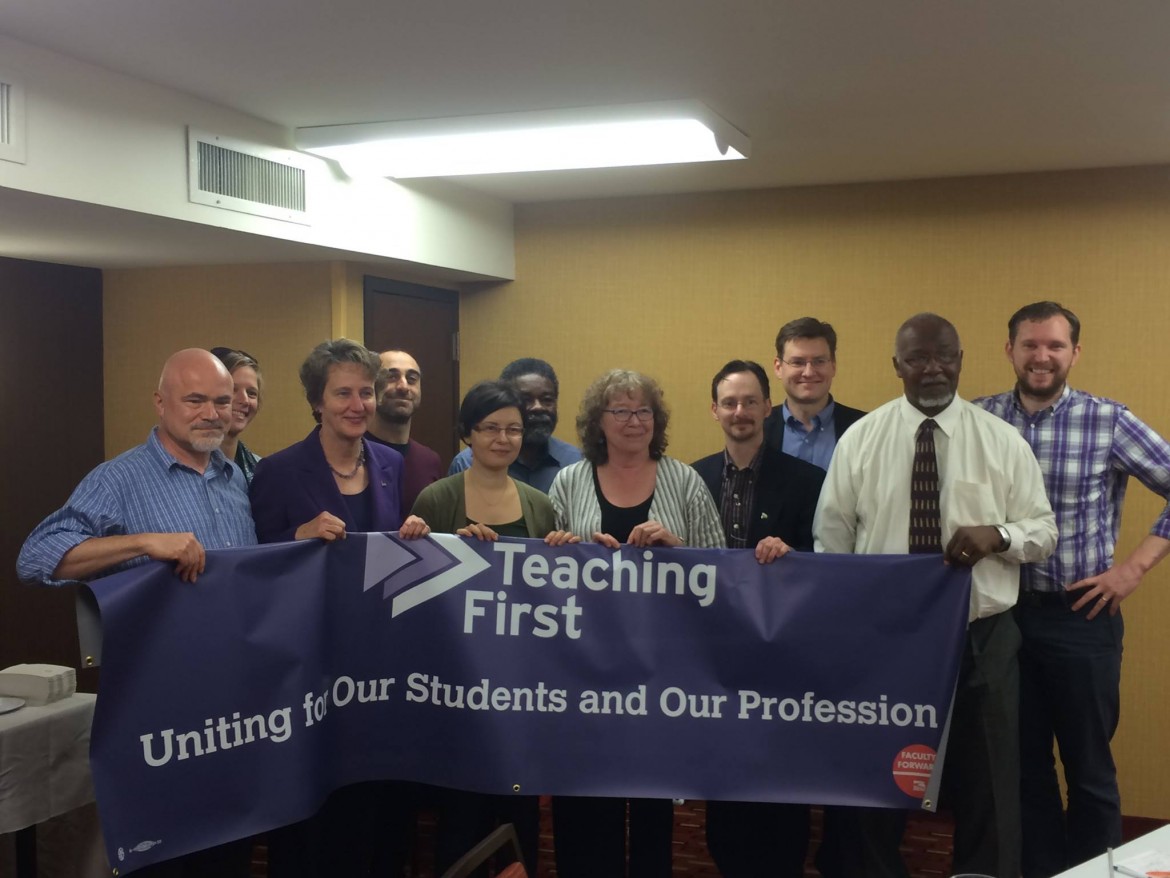Commentary
The great American university: where teaching is a vow of poverty
Duke University is among the top 20 universities in the world, yet its administration wants to bust a budding union effort.

A group of workers wants to form a union, and the boss writes to the employees telling them to think twice.
It seems straight out of some 19th century English factory or a field of tomatoes in Southern California. But this is Duke University, in North Carolina, one of the most prestigious private universities in the United States, possibly one of the top 20 in the world and winner of two Nobel Prizes in four years.
There, contract faculty are trying to create an association to represent them and defend their rights. But the initiative has alarmed the administration, which quickly posted a letter from the provost urging faculty to reconsider. “In a unionized environment,” she wrote, “the administration would not deal directly with faculty regarding their wages, benefits or working conditions, but would have to negotiate those issues collectively with the union.” Duke University is apparently afraid of something that happens at companies all around the world.
The workers trying to unionize are adjunct faculty, such as Italian language lecturer Andrea Scapolo, who is part of their group, Duke Teaching First. “The provost’s letter was expected,” he said. Scapolo and his colleagues teach courses on contracts of lengths varying from a few months to five years. The salary? It varies from case to case, but here the average salary is $7,500 per semester, higher than the national average. But the workload is also higher at Duke.
Elsewhere, the conditions are much worse. Adjunct professors at American universities earn an average of $2,700 per course, according to data from the American Association of University Professors (AAUP). The majority of these faculty earn wages below the poverty line. Plus, they often lack basic benefits like pensions and health insurance. Sometimes, they aren’t even given a desk or a parking permit on campus. Yet, according to the AAUP, these teachers account for 76 percent of college professors in the United States.
The initiative by Duke Teaching First is making a lot of noise at the university. “We continue to meet colleagues who express solidarity and decided to sign the authorization cards to allow union elections, although, obviously, there is concern and fear,” Scapolo says.
Students have also turned out in support. The organization United Students Against Sweatshops has collected hundreds of signatures backing Duke Teaching First. “It’s an amazing result because the majority of students at Duke are rather conservative,” Scapolo says. “But they have real power, since they pay $50,000 in tuition a year. They want teachers who want to invest their time and energy in teaching the courses each semester, without having to desperately seek jobs in a more stable labor market.”
There’s actually research on the damage of this insecurity. According to a study by Audrey Jaeger of the University of North Carolina and Kevan Eagan of UCLA, for example, students who have attended courses taught by temporary teachers are less likely to finish college.
Permanent, tenured faculty have even encouraged unionization, even though they themselves are barred from unionizing after a 1980 Supreme Court decision declared private school tenured faculty as “managers” and therefore ineligible.
But don’t let the support fool you. Unionization in the United States is still largely taboo, and in some states it’s illegal for all public employees to collectively negotiate their wages. (North Carolina is one of those states.) The result is that unions exist in only 21 percent of American private universities and 35 percent of public ones.
Where they do exist, the working conditions of tenured faculty and adjuncts have improved markedly. The American Federation of Teachers, the largest American union of university professors, with 200,000 members, has helped increase compensation for University of California adjunct faculty to over $10,000 per semester.
And it’s been shown that increasing wages doesn’t actually hit the universities’ bottom line. Mark Cassell, a political science professor at Kent State University, examined the impact of unionization and academic performance and drew a clear, surprising conclusion. “Unionization,” he writes, “helps to improve the budgets of universities and to increase the percentage of students who complete their studies.” Where unions are present, he found, universities spend less on bureaucracy and invest more on teaching.
Efforts by adjunct professors to organize could multiply in the near future, thanks to a national campaign called Faculty Forward. It was launched by the Service Employees International Union (SEIU), a union with 2 million members who are mostly service sector workers, among the least secure laborers in America. It is the SEIU, for example, that is pushing a $15-an-hour minimum wage for fast food employees, a policy that recently received the support of Vice President Joseph Biden and was adopted into the Democratic Party platform.
The demands of Faculty Forward are similar: Adjunct professors should be paid $15,000 per course. Already 8,000 temporary teachers have joined the campaign, according to the SEIU, and at various universities (Tufts, Boston, Georgetown) new unions have forced a considerable rise in minimum wages for contractors.
If the contagion reaches Duke, it would be a massive boost to the broader effort, Scapolo says. “Duke is a leading institution in the southeastern United States: Improving Duke would lead to improving conditions in many other universities in the region.”
Originally published at http://www.ilmanifesto.info/lunion-sale-in-cattedra/ on 2015-10-29
